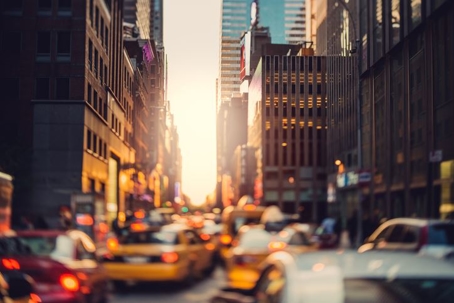An Instructional Guide for Sharing the Road with Bicyclists and Motorcyclists:
On the road, bicyclists and motorcyclists have the same rights as you do. Sharing the road is a shared responsibility. As a driver, you should not only follow the rules of the road, obey traffic signs and signals, and drive defensively but also consider the unique safety challenges bicyclists and motorcyclists face.
Tips to help you share the road include:
- Yielding the right of way
- Being extra careful in parking lots
- Turning safely
- Checking your blind spot
- Giving cyclists room
How to Yield
Bicycles and motorcycles are considered vehicles whenever they are on the roadway. Yield to a bicyclist or motorcyclist the same way you would to another car. That means waiting until it is safe to pass and not turning into another vehicle’s path.
Many drivers underestimate how fast cyclists are going, so don’t make this mistake – wait until it is safe instead.
Take Extra Care
Parking lots are dangerous places for all vehicles because motorists often forget to check their surroundings. You should always be aware of your surroundings, and when it comes to bicyclists and motorcycles, be extra careful. Remember that bicyclists and motorcycles are extremely vulnerable and will always be more injured in a collision with a car.
Be Cautious with Right and Left Turns
Intersections and driveways are common sites of car accidents with both bicyclists and motorcyclists. If you turn right without signaling or checking for bicyclists, you could hit someone in the bike lane or cut off a bicyclist or motorcyclist who may not be able to stop in time. Look to the right and behind you before turning right, and stop completely and look left-right-left and behind before making a right on red.
When turning left, remember that cyclists can go 15 or 20 mph and motorcyclists can go even faster. Exercise the same caution you would with another car and don’t try to turn left if there’s not enough space!
Why You Should Always Check Your Blind Spot
Whether you are turning or changing lanes, you should always check your blind spot. Mirrors can be helpful, but they are no substitute for first-hand judgements, especially with small vehicles like bikes and motorcycles on the roadway.
Even when you’re getting out of your car, look behind and to the side of you – if you open your door into a bicyclist’s path, you could knock them off their bike and/or send them into traffic. This is known as “dooring.”
Give Cyclists 3 Feet of Clearance
Many states require drivers to give cyclists 3 feet of space on the road. When you pass, accelerate slowly and smoothly, then give the cyclist plenty of room while you pass them. Avoid honking, as you can unnerve and distract cyclists, stay out of bike lanes, and be patient. If there’s oncoming traffic, the lane is too narrow, or you can’t see what’s in front of you or the bicyclist, simply wait for a safer time to pass.
The same goes for motorcyclists on the freeway. Remember that bicyclists, motorcyclists, and even pedestrians have as much of a right as you do to be on the road – and that they do not have the same protections.
What to Do If You Get into an Accident
If you collide with a bicyclist or a motorcyclist or get hit by a car, call 911 immediately. Take photos of the accident and find and document any witnesses.
Do not leave the scene of the accident unless you are being transported by EMS or until you have permission from the authorities. Give your statement to the police and stick to the facts. After you have gathered as much evidence as possible, asked for a copy of the police report, and sought medical attention, speak to an attorney, and make a claim with the at-fault party’s insurance claim.
Drivers often face liability for collisions with bicyclists and motorcyclists because the injuries are so much worse for the smaller vehicles, but negligent cyclists and motorcyclists can still be held accountable for riding unsafely and breaking laws.
The Law Offices of Charles R. Gueli can help you tell your side of the story as a driver, bicyclist, or motorcyclist. With more than 2 decades of legal experience, we can help ensure your voice is heard.
Call us at (516) 628-6402 and tell us what happened today or contact us online to schedule your free consultation. We are available 24/7 to take your call.

